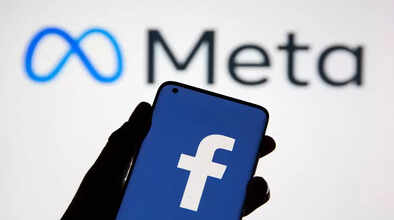Strictness: After YouTube, now Meta has also used scissors, now you will not be able to earn from such videos on Facebook..

After YouTube, now Meta has also announced that it will take a tough stand against accounts that repeatedly share others' content on Facebook. The company said on Monday that strict action will now be taken against accounts that constantly repeat someone else's text, photo, or video.
Meta said that so far this year, it has removed about 1 crore fake profiles, which were imitating big content creators. Also, it has taken action against about 5 lakh accounts that were involved in spam or fake engagement, such as demoting comments and limiting the reach of content.
What is the new policy?
Meta said that it will not target users who make reaction videos on any content, participate in trends, or add their opinions. The real target is on those accounts that deliberately copy and share others' content, whether they are spam profiles or fake creator accounts.
Monetization of such accounts can be stopped, the reach of posts will be reduced, and they will be removed from Facebook recommendations. Meta will now also identify duplicate videos and reduce their distribution so that the original creator gets credit and views.
Eye on 'cheap' videos made by AI
Meta has not directly mentioned the AI slope (AI-generated low-quality videos), but its suggestions for 'original content' clearly state that do not create content by just adding clips or applying watermarks, focus on authentic storytelling and do not create videos that do not have any clear value, that is, repetitive videos made by AI are also on Meta's radar.
What should creators do?
Meta says that these changes will be implemented gradually, so that creators will have time to adjust. If creators want to understand why their content is spreading less, then they can see new post-level insights by going to Facebook's Professional Dashboard. Also, creators will see in the Support section whether they are in danger of any punishment, such as monetization being stopped or being removed from recommendations.
Why did Meta have to take this step?
Fake, duplicate, and low-quality content is increasing rapidly on social media platforms due to AI. YouTube has already announced strict action against it. Now, Meta is also doing this to maintain the quality of its platforms.
This move by Meta is a warning to content creators that if they are only sharing copy-paste or repeated AI content, they may have to face punishment from Facebook. Now if you want to survive on social media, then creating authentic and value-giving content is the only way.
Disclaimer: This content has been sourced and edited from Amar Ujala. While we have made modifications for clarity and presentation, the original content belongs to its respective authors and website. We do not claim ownership of the content.

